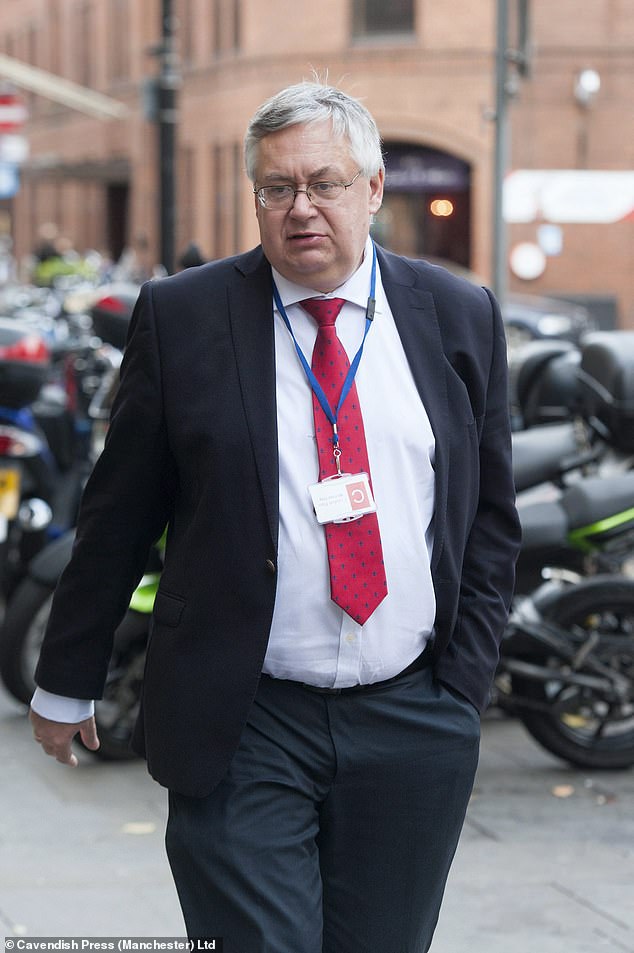A Polish cardiologist working in the National Health Service (NHS) has been suspended after failing his tenth attempt to pass English exams.
Shockingly, it is the fifth time in 18 years that Dr Tomasz Fryzlewicz, 65, has been punished for his poor command of the language.
However, between suspensions, he has worked as a cardiac specialist at Princess Alexandra Hospital, Essex, University College London Hospital, Royal Stoke University Hospital and Good Hope Hospital in Sutton Coldfield.
Despite being repeatedly reprimanded and branded a danger to patients, the doctor, who moved to the UK in 2006, claims to have been the victim of a “witch hunt”.
Dr Fryzlewicz was first reported to the General Medical Council (GMC) in 2014 for his language problems.
Dr Tomasz Fryzlewicz, 65, has been banned from treating patients in the UK after failing a 10th attempt to pass language exams. This is the fourth time he has been suspended for bad English.

In 2021, the cardiologist was classified as a risk for patients who failed seven language tests and was fired for ten months, but was allowed to return to work.
He was ordered to report annually to the medical regulator and then insisted he watch television and listen to the radio in a bid to learn English better.
At first Dr Fryzlewicz, of Plymouth, was allowed to work in hospitals under supervision.
But at his third employment tribunal in 2017, he was suspended from practice for six months after failing to improve his English.
He was readmitted under supervision in 2018, but was suspended again in 2020 for 12 months.
In 2021, the cardiologist was fired for another ten months.
Dr Fryzlewicz was allowed to return to work in 2022 on the condition that he successfully pass an English exam within the next 18 months.
But in 2023 he was suspended again for 12 months and given a ninth chance to retake them after failing the tests twice in eight months.
At his last tribunal, Dr Fryzlewicz was suspended for a year and offered another chance to pass his exams.
He cannot be removed over language issues, but will face a hearing next year.
Some colleagues who worked with Dr. Fryzlewicz said they were not always sure he understood what they said.
Dr Simon Woldman, clinical director of specialist cardiology at Barts NHS Trust, told a tribunal in 2014: “When I spoke to Dr Fryzlewicz, I was never really sure that he understood the instructions he was being given…
“When (he) spoke, you had to concentrate a lot to understand what he was saying.”
Previously, Fryzlewicz had called GMC investigators “anti-humanitarian bureaucrats” and also claimed that he was the victim of “indirect discrimination” due to his nationality.
He said “revenge was sought” as he was “a Polish Catholic consultant cardiologist who made money in UK hospitals”.

A colleague told a court in 2014: “When I spoke to Dr Fryzlewicz, I was never really sure he understood the instructions he was being given.”
He refused to attend the most recent hearing and sent an email to health chiefs claiming he could not afford to have a lawyer represent him.
In his letter, Fryzlewicz wrote: ‘(The) accusation that my English language skills were insufficient to work in the NHS has been recognized as false by many medical consultants who worked with me in many hospitals.
“I have shown all the documents proving this many times to the (medical labor court body) the MPTS.”
Dr Fryzlewicz had initially been dismissed from the Princess Alexandra Hospital in Harlow and University College London Hospital due to concerns about his language skills.
GMC lawyer Miss Emma Gilsenan told the hearing: ‘Dr Fryzlewicz’s attitude towards the regulator and the requirement that he must achieve the minimum level of English language to practice medicine in the UK is worrying.
‘His communications show he is more focused on what he believes is political and religious persecution by the GMC, than addressing the concerns of this case.
‘There has been no progress since the case was last reviewed in 2023 and there was no evidence of knowledge or remediation.
“The requirements placed on him are no different to any other doctor even though he feels he is being persecuted by the GMC.”

GMC lawyer Miss Emma Gilsenan told the hearing: “Dr Fryzlewicz’s attitude towards the regulator and the requirement that he must achieve the minimum level of English language to practice medicine in the UK is worrying.”

Dr Fryzlewicz had initially been dismissed from the Princess Alexandra Hospital in Harlow and University College London Hospital due to concerns about his language skills.
MPTS president Mr Sean Kyne said: “There is no evidence before the Tribunal that Dr Fryzlewicz has a good command of the English language, in the form of satisfactory exam scores.
‘The Tribunal was disappointed that Dr Fryzlewicz had not provided any evidence to demonstrate what he had done to address the issues which gave rise to the concerns in this case.
“To progress and move forward positively, you will need to shift your focus to the present and your future opportunities to practice.”
Until now, the GMC could only assess the language skills of doctors from outside the EU.
This was revised following the case of a Nigerian-born German doctor who injected a patient with a lethal dose of morphine, partly due to his poor English, while on his first shift as a locum doctor in 2008.


